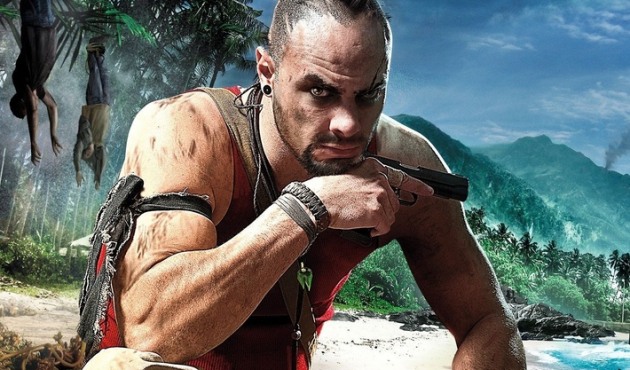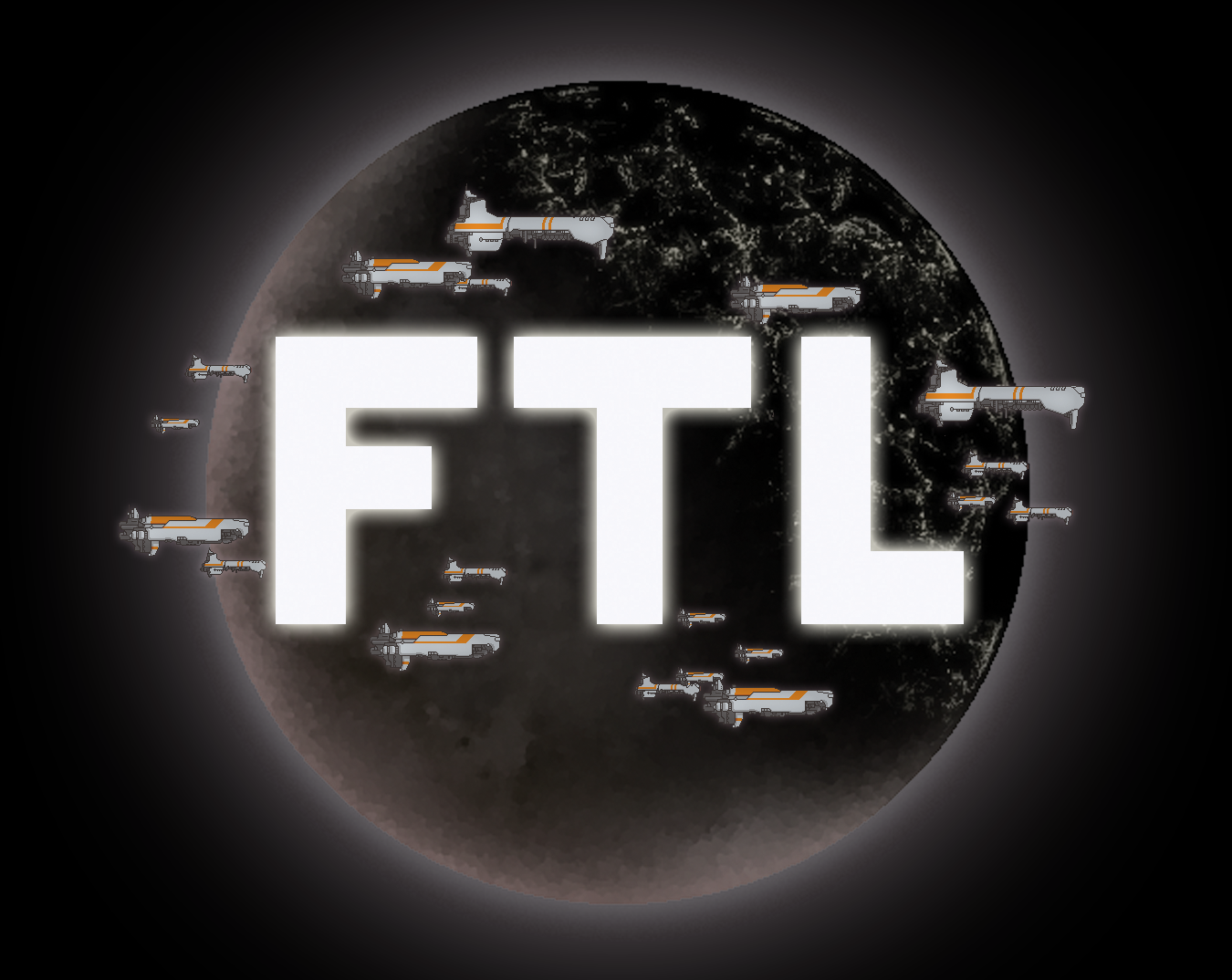So, I wasn't looking forward to Far Cry 3 at all. At first it looked like just another bland (but colorful!) shooter, including all the marketing. (That Vaas quote doesn't mean much out of context...)
But then the power of word of mouth took over. Skyrim with guns? Sounds worth a try. (It's totally NOT Skyrim with guns, by the way. Closer to Assassin's Creed, much closer)
I managed to get hold of a copy (free, actually, with the new video card my sister got), downloaded the game Monday (that's two days ago)... and beat it. Yesterday, just before 4. I was pretty well hooked. I dumped.. probably 30 hours out of 36 or so before I quit. (I'm pretty much done, now. Need to try the co-op at some point, but a mic might be helpful and mine is somewhat broken. If someone wants to play, tell me!)
So here's my analysis of the game, specifically how the mechanics aid the themes of the game. There WILL be spoilers, so be warned, although I don't think spoilers would ruin the story and I'll try to avoid those that do.
 |
| Vaas, the main antagonist |
Progression
For once I actually need to bring up plot. Far Cry 3 is a game where you play a thrill seeking tourist named Jason Brody whose party of 20 something friends (including a younger and older brother and Jason's girlfriend) gets kidnapped to be sold into slavery by a psychotic pirate named Vaas. (He of the "do you know the definition of insanity" quote) You escape (because Vaas is dumb/crazy and lets you run), and are saved by the natives.
Then things get weird. This guy from the village, named Dennis, gives you some tattoos, talking to you about some native 'Path of the Warrior', and sets you on your way to saving your friends and killing Vaas.
Whenever you level up, you get to choose perks that let you do more awesome stuff (seriously awesome stuff) and add to the tattoo on your arm. The tattoos either give you power or represent your growing strength, it's unclear which. Either way, they essentially mean exactly the same thing to Jason and to the player, which is pretty unusual.
So, you have these tattoos, and you've got some objectives to do. You start out pretty weak, with just a pistol and a knife (well machete), but pretty quickly you earn your way up to some basic assault rifles and such. And so you begin your way on the path of the warrior...
 | |
| The tattoo... |
As you progress, you steadily become capable of more and more incredible feats, becoming tougher and more lethal with every perk you take. By the end of the game you and Jason will be a murdering machine, willing and capable of murdering dozens of people in a variety (such a variety) of ways without breaking a sweat. The end result is that the player and player character motivations become pretty much the same - always a good thing.
 |
| ...the perks |
Escapism
Jason's character is essentially defined by two words: 'thrill seeker'. He goes on DOZENS of excursions doing dangerous, adrenaline filled activities like skydiving and snowboarding, and the intro cutscene showing the group before they got kidnapped shows him doing just that.
When he gets the chance to go all Rambo and murder everyone... well, he's cautious at first. After all, 'he's never shot anyone before'. Before long, though, he begins to relish it and see it as the ultimate thrill. Killing without penalty is FUN... wait. Sound familiar?
The parallel between Jason's thrill seeking murdering rampage adventure and the player's escapism entertainment is pretty inescapable. Again, we have mechanics that support this. The combat is over the top and encourages experimentation - you'll have a LOT of "let's see if THIS works" or "I wonder if I can do that" moments, just like you'd imagine Jason having. The vehicles are really fun to drive, but also incredibly dangerous - jumping and rolling out of a vehicle as it accidentally careens off a cliff is a common thing. Everywhere there are animals that can and WILL kill you if you're not careful, but they also reward you for manipulating and hunting them.
 |
| Jet ski, ramp, sunset, rapids. Everything a thrill seeker wants. Except death. |
The most interesting aspect of this is the outpost mechanic. In the game, Vaas's pirates and later on his bosses' privateers hold outposts that you can claim permanently, unlocking new activities in that area and generally making it MUCH safer (not perfectly safe, though. Enemies will still come through, and the animals certainly never go away). That area essentially becomes a generic (if still rather fun) island getaway, with occasional added violence. But the REAL fun comes from exploring new areas and finding new entertaining ways of killing your enemies. The outposts exemplify this, being both the most difficult and the most varied encounters outside of the main campaign.
But what happens when you clear out the outposts? Presumably you're most of the way there by the end of the game, or possibly all the way there (I wanted to finish up the main story so I still had.. maybe a third of them left? Most of the harder ones) The final ones feel like a theme park - you have all your abilities, and this is pretty much the ultimate test to see how you use them. I spent two HOURS playing around, trying to drop on top of someone to do a takedown using a body flight suit and a parachute. (I figured it out, eventually. There's an achievement for it).
When you have them ALL, however, and you've done all the hunts and gotten all the gear... there's nothing left to do. For you or for Jason. I mean, sure, you can go race 4 wheelers and dune buggies, go skydiving/hang-gliding, or just see the sights (of which there are PLENTY). The main thrill of the kill is gone, though. You're done, and the game has little left for you, and little left for Jason (who has done all that before, MANY times - which is why the killing was just a blast for him. Taking it up to eleven, as it were) There's a reason the story ends with you leaving the island in some way no matter what you do.The island holds no more appeal to Jason, and if paced properly (as in you take your fill of the extras before finishing the story), it doesn't to the player either.
 |
| Ziplines. These things are all over the place. |
Conclusion
I had a blast with this game. I SLAMMED through it in a couple days, and I don't regret a minute of it. It's the most FUN I've had all year. The mechanics and the themes mesh quite well together, in a way I haven't seen before, and the combat encourages experimentation and variety in a way nothing else this year has - including Dishonored and Assassin's Creed (which this game feels a LOT like, incidentally - especially the radio towers and the outposts), or Skyrim last year (as in the quote from the promos).
The game's parallels between player motivation and character motivation are really interesting. Those themes are definitely there, even though that's not the main message of the story - a fairly simple, definitely blunt "power corrupts" along with "not so different", but the game's mechanics combined with certain aspects of the story dissect the idea of a power fantasy by putting the character in a (relatively) realistic example of playing one out. (Most power fantasies are VERY fantastic. This one makes a big deal out of it being relatively possible) A lot of this stuff you may not even notice while you're playing, but by the time I hit the end, they were pretty apparent, which is the way it should be.
I'm somehow surprised I'm not hearing more about Far Cry 3, but then again I didn't hear much about Assassin's Creed 3 either. It doesn't do anything hugely different, or feel particularly different, but it executed really well, at least for me. I feel like the reason no one was discussing it was because of a bit of a lack of promotion - like I said, I thought it was just another shooter sequel (I didn't know much about Far Cry) until I started hearing from people playing it. The release time didn't help either, coming out right before people started discussing GotY awards, and people didn't have enough time to play it before the discussion was drowned by the GotY talk.
Oh, I suppose I should mention where it is in MY games of the year... fairly high, honestly. As far as FUN, it was incredibly fun. It felt short, because of my marathoning, but it was actually just as long as Mass Effect 3 or Assassin's Creed, and it never overstayed its welcome. (Well, it can, but if it does you just play the not-so-long main story. Because you're bored and want to get off the island. Like Jason would!) It manages to deliver some commentary about games and have some really interesting mechanics while still being fun, something I haven't seen much of ever, let alone this year. As far as number? Eh. I don't know. I'll tie it with ME3 for my personal enjoyment and the walking dead and Dishonored for having interesting mechanics, so I guess that's a win for Far Cry 3? Eh. I liked it, and that's what matters at the end of the day
P.S. I recorded a few videos of post-game outpost reclamations, I'll upload them and add them here when I'm done. I'm planning on doing a video with commentary fairly soon as well, so I'll post that here if it happens.



